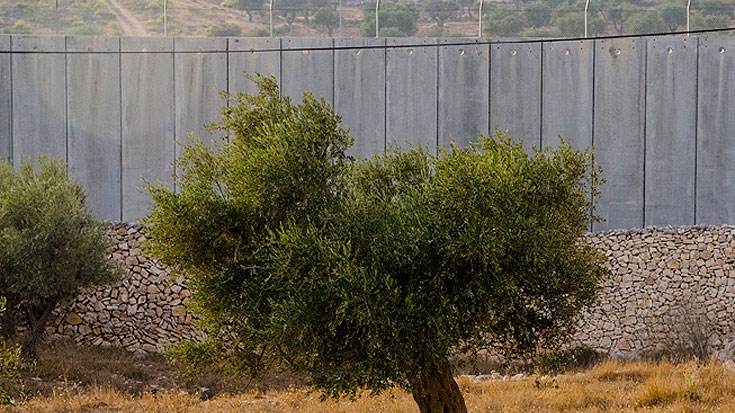To quantify the economic impact of Area C restrictions, the report focuses on five specific sectors that are thought to be most significantly affected.
Agriculture: Area C includes the majority of West Bank land that is suitable for agricultural production in addition to the greatest percentage of total water resources. Access to Area C could therefore deliver an additional $700 million in value added to the Palestinian economy – equivalent to seven percent of Gross Domestic Product (GDP)- as a result of access to fertile land, and the availability of water to irrigate it.
Dead Sea Minerals: The Dead Sea abounds in valuable and relatively rare minerals. Potash can be extracted from the Dead Sea with very little processing and sold as a fertilizer. A full 73 percent of global supplies of Bromine output is derived from the Dead Sea by Israeli and Jordanian companies and the reserves are estimated to be about 800 years’ worth. Exploitation of Dead Sea minerals could generate around US$920 million in incremental value added to the Palestinian economy, or nine percent of GDP, almost equivalent to the current contribution of the entire manufacturing sector.
Stone Mining and Quarrying has a long tradition in the West Bank. However, most stone deposits are to be found in Area C. Current operations are threatened because companies are not able to extend their operating permits. The Bank has estimated that if Palestinian enterprises have access to Area C to develop new mining and quarrying operations, the resulting incremental value added would be US$240 million.
Construction: Restrictions on Area C limit the supply of potential construction land. Land scarcity results in higher land prices and therefore higher construction costs, which in turn increases the price of housing and commercial units constructed by about 24 percent. Higher prices have depressed the demand for new buildings, which results in the loss of value added of at least $240 million.
Tourism: Area C holds 3,110 registered archeological sites, some of which could become tourist destinations. In addition, at least six kilometers of Dead Sea shore could be developed into resorts similar to those in Israel and Jordan at the Dead Sea. This could provide a value added of about USD126 million.
Telecommunications: Poor access to Area C, the difficulty of obtaining permits to build infrastructure, restrictions on the use of the electromagnetic spectrum and problems with importing essential telecommunications equipment result in the loss of around $50 million in value added.
Access to economic activity in Area C would also provide significant indirect benefits. These benefits would arise from improvements in the quality and cost of physical and institutional infrastructure, as well as spillover effects to other sectors of the Palestinian economy from growth in the five sectors discussed above.
In sum, the total potential value added (direct and indirect) as a result of the easing of current restrictions on access to, and activity and production in Area C would likely equal 35 percent of total Palestinian GDP for 2011.

